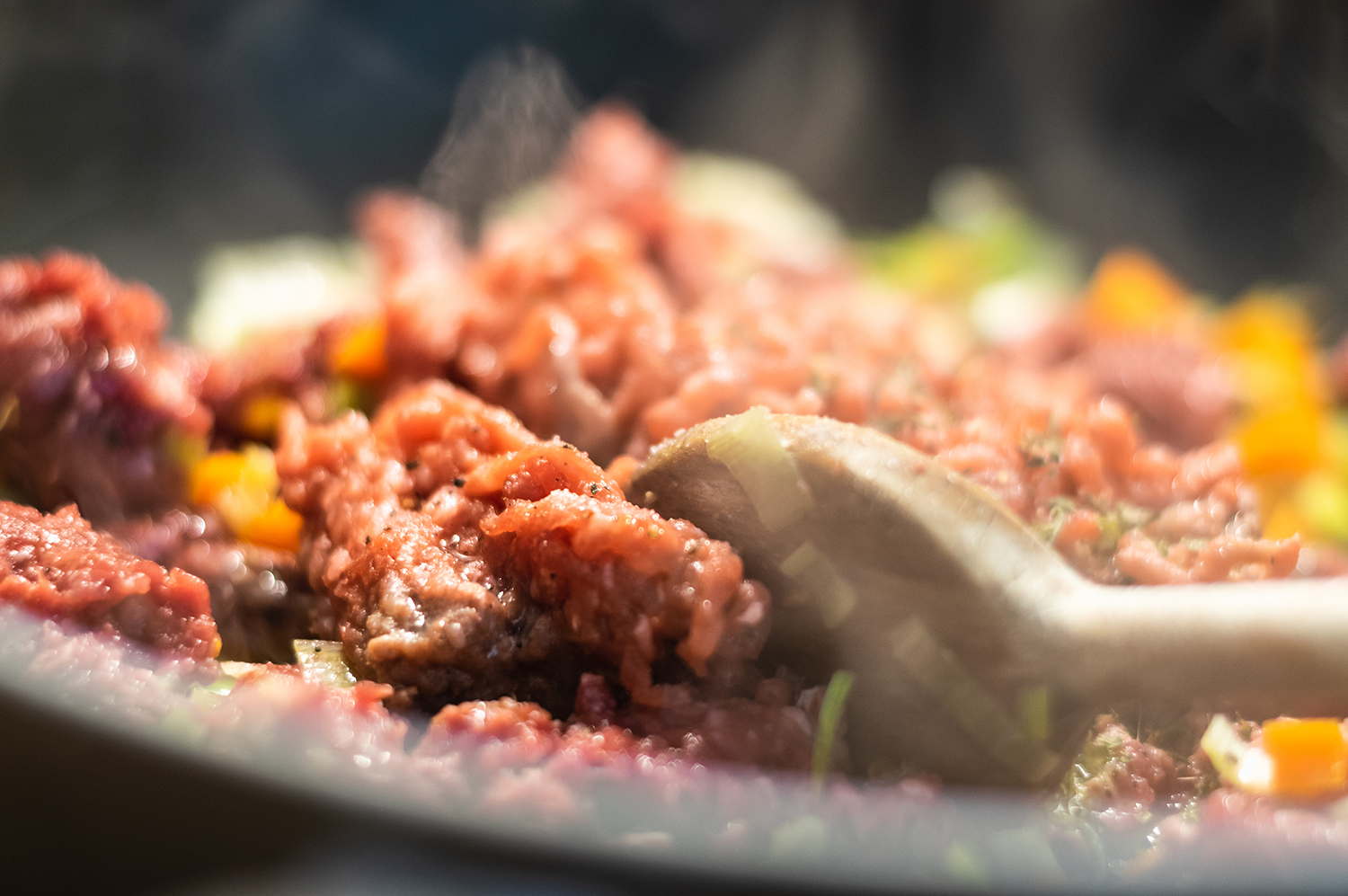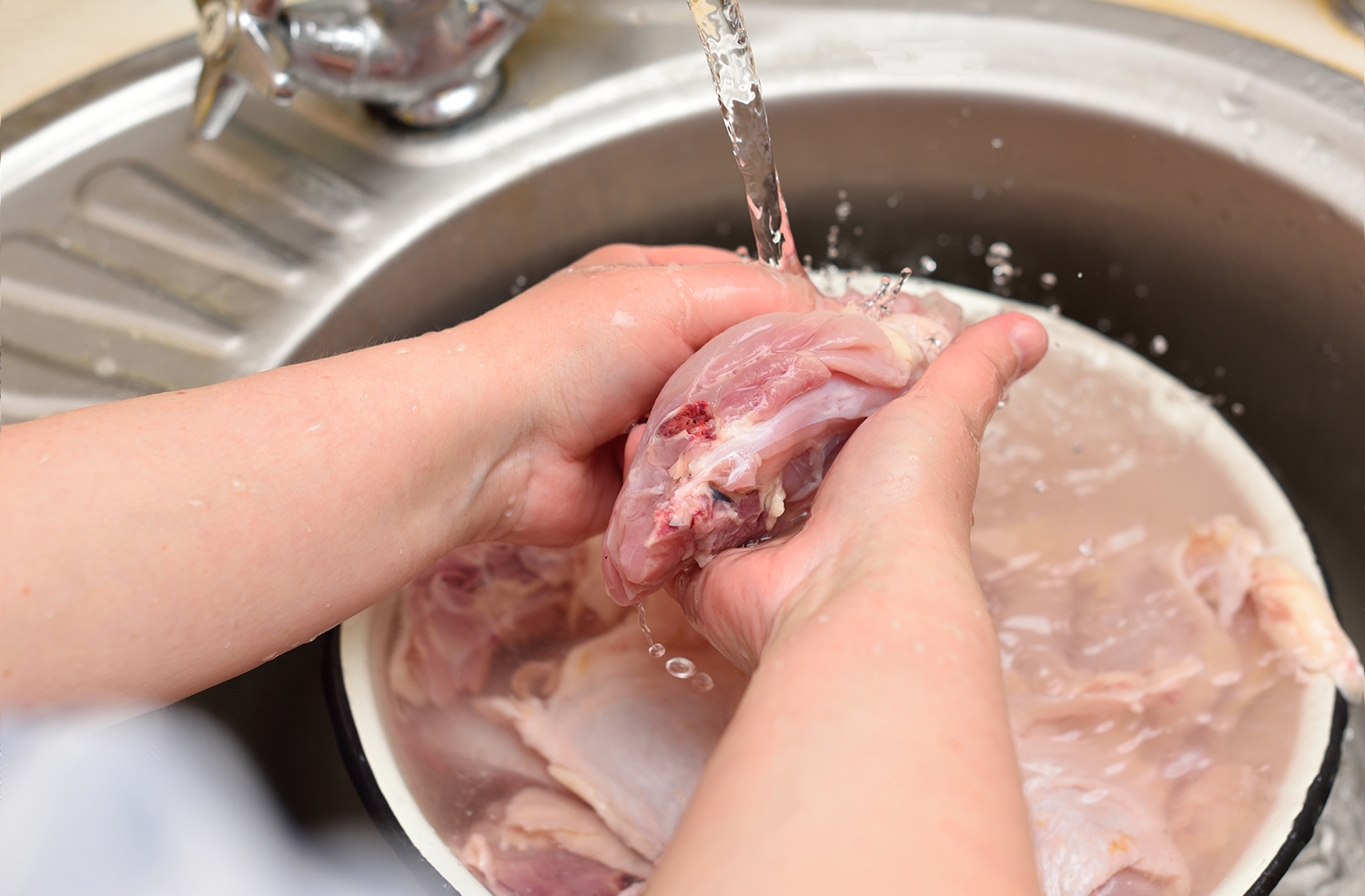Tapeworm infection is majorly transmitted through contaminated food and water. Thus, this infection can be prevented effectively by ensuring that the food is not contaminated, by cooking it properly. Also, there are other steps that can prevent the tapeworm infection, which are discussed below.

Cooking and/or freezing meat and fish
Beef, pork, fish and other meats should be cooked thoroughly and completely at temperatures of at least 145o F (63o C). This kills any tapeworm larvae or eggs which may be present in the meat.
Cooked meat or fish should be kept away from raw meat or fish. The plate or dish that had the raw meat or fish should be washed well before using it.
Avoid eating raw freshwater fish such as salmon and undercooked or raw beef or pork.
Freeze fish for at least 24 hours and meat for 7 to 10 days at a temperature of -31o F (-35o C), which also helps to kill the tapeworm eggs and larvae. However, the meat and fish should be cooked thoroughly despite prior freezing.
Sometime, pickling can also help to kill the tapeworm larvae and eggs, like pickling fish in brine (saltwater). But drying or smoking fish or meat are not reliable ways to kill the tapeworm larvae and eggs. However, cooking the meat and fish is the safest way to prevent the transmission of the infection.
Also, wash the fruits and raw vegetables before eating, and clean the kitchen equipment and work surfaces thoroughly.

Good hygiene practices
Personal hygiene is an important and simple way to prevent tapeworm infections. These include washing hands with soap and water:
- after using the toilet
- before and after handling food, especially raw meat and fish
- before eating
- after changing diapers
- after close contact with pets or farm animals.
These steps ensure that the food is safe to eat, and help prevent health hazards, such as food poisoning and tapeworm infection.
Measures for safe handling of animals
Avoid touching or going near the animals that have the tapeworm infection. Keep children away from these animals.
Wash hands with soap and water after contacting any animal.
Good personal hygiene must be practiced at work by individuals whose job involves handling food, such as fish and meat. This protects the health of the individual as well as the community.
Dogs diagnosed with tapeworm infection must be treated straightaway. De-worming medication must be given regularly to the dog and special care must be taken as advised by the veterinarian. Also, working sheepdogs must be regularly de-wormed, as sheep are good hosts for dog tapeworm. Dogs must not be fed raw meat and offals.
Preventive measures while travelling to developing countries
Tapeworm infections are prevalent in some developing countries and regions where the sewage is not disposed properly or is untreated. Drinking water in these regions can by contaminated with animal or human waste.
Good personal hygiene must be practiced when travelling in these areas. Be careful about the food and water consumed. Ensure that the meat and fish is cooked properly before eating, the drinking water is clean and use clean water to wash raw vegetables and fruits before eating. If the water is not safe for use, boil it for a minute before using.